- Author Jason Gerald gerald@how-what-advice.com.
- Public 2023-12-16 10:50.
- Last modified 2025-01-23 12:04.
Norton is an antivirus program designed to protect your computer against viruses and other malware infections. Norton can cause problems when you try to install other programs, and can sometimes cause your computer to run slowly. If something like this happens, turning off Norton can come in handy. If Norton continues to cause problems, uninstalling Norton may be the best solution.
Step
Method 1 of 3: Disabling Norton Antivirus (Windows)
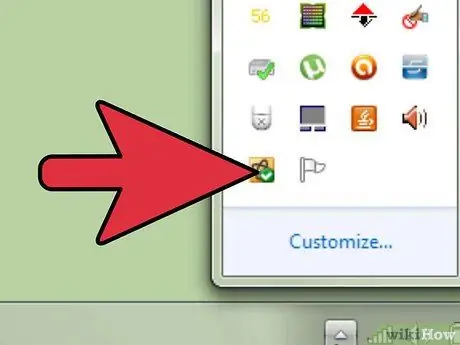
Step 1. Look for the Norton icon in the System Tray
This is a set of icons located in the lower-right corner of your Windows desktop, next to the clock. These icons represent programs that are currently running. If you don't see the Norton icon, click the "▴" button to show all hidden icons.
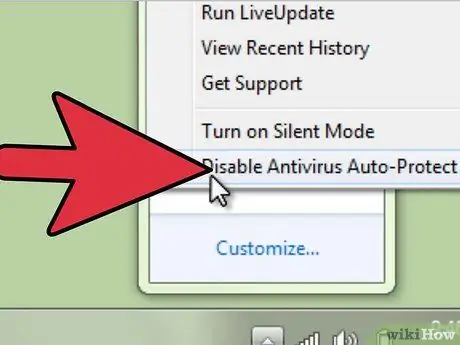
Step 2. Right-click the icon
This will open a small options menu. Select "Disable Antivirus Auto-Protect". It is an active part of Norton Antivirus. Disabling it will turn off any active virus protection.
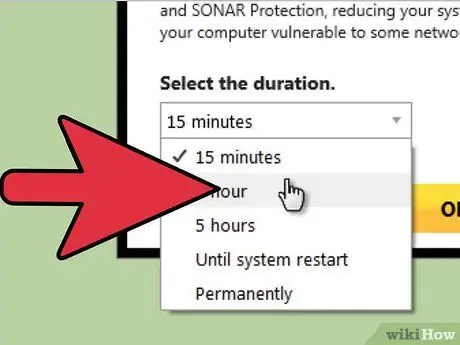
Step 3. Select the time duration
You can choose to disable your antivirus protection for a period of time, until your computer restarts, or permanently. It is not recommended to surf the internet without enabling active protection.
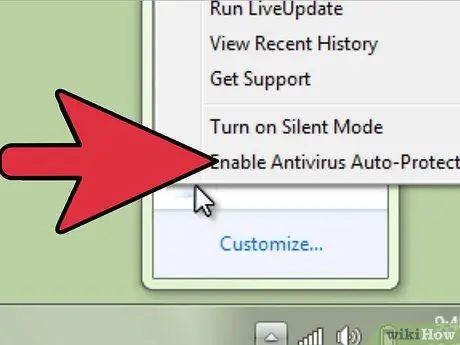
Step 4. Re-enable the protection
When you are done with a task that requires you to disable antivirus protection, you can right-click the Norton icon again and select "Enable Antivirus Auto-Protect".
Method 2 of 3: Removing Norton Antivirus (Windows)
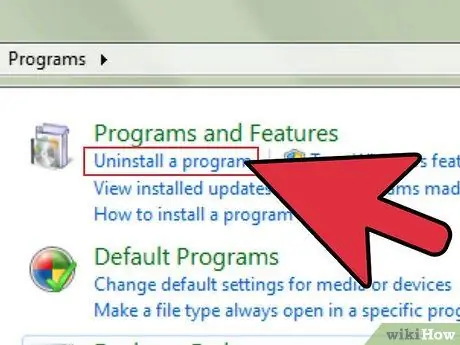
Step 1. Open the Windows program manager
You can access it from the Control Panel, which can be found in your Start menu. Select "Programs and Features" or "Add or Remove Programs".
Windows 8 users can press Win+X and select "Programs and Features"
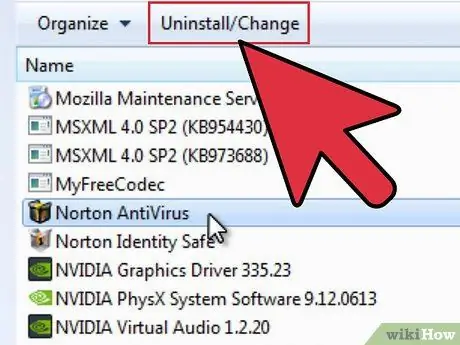
Step 2. Look for the "Norton Antivirus" entry
There will probably be some Norton entries, but focus on the Antivirus entries first. Select the entry then click Uninstall or Change/Remove.
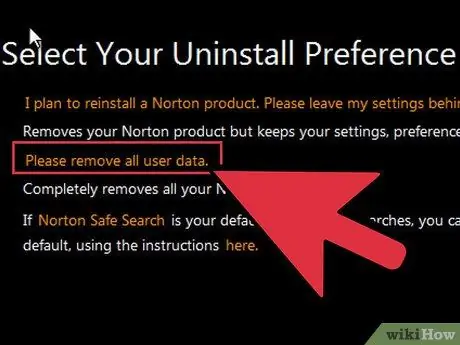
Step 3. Choose whether you want to save your preferences or not
You will be asked if you want to keep your preferences (in case you want to reinstall) or delete all your data. If you want to delete Norton, choose to delete all of its settings, preferences, and files.
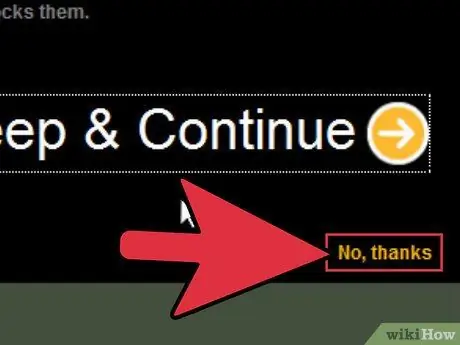
Step 4. Choose whether you want to keep Norton Identity Safe or not
This is a password manager, which Norton recommends that you stick with. If you don't want to save it, click "No, thanks".
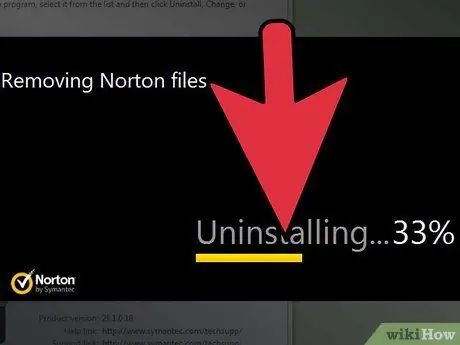
Step 5. Wait for the uninstallation of the program to complete
The deletion process can take a few minutes.
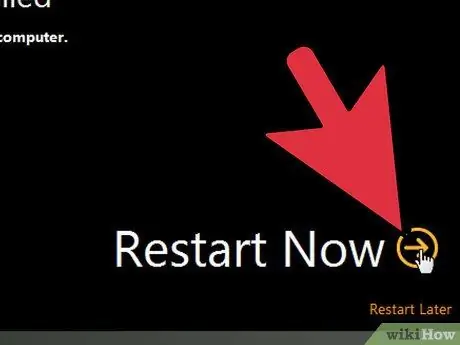
Step 6. Restart your computer
You must reset your computer for the deletion to take effect. After your computer reboots, Windows will tell you that you no longer have the antivirus.
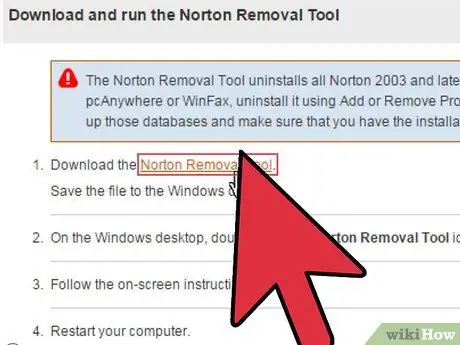
Step 7. Download Norton Removal Tool
This is a program released by Symantec (the developers of Norton) that will remove all traces of the Norton software from your system. This is especially useful if Norton can't be erased properly.
- Download Norton Removal Tool by typing "Norton Removal Tool" in your favorite search engine. It will appear in the first order of search results.
- Run the Removal Tool. You must accept the license agreement and enter a Captcha to prove that you are human.
- Reboot your computer once the Removal Tool has finished doing its job.
Method 3 of 3: Uninstalling Norton Internet Security (OS X)
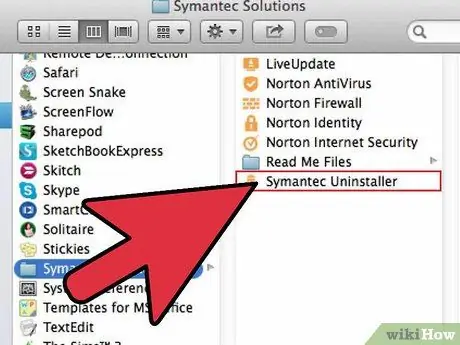
Step 1. Open Norton Internet Security
You can find it in the Applications folder.
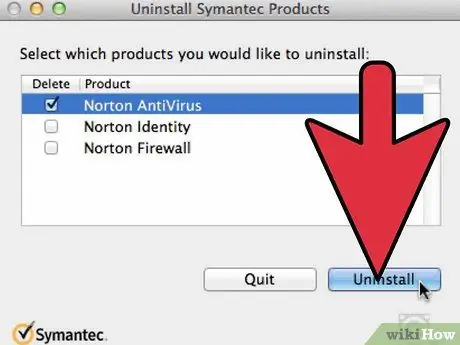
Step 2. Run the uninstaller
Click Norton Internet Security → Uninstall Norton Internet Security. Click Uninstall to confirm.
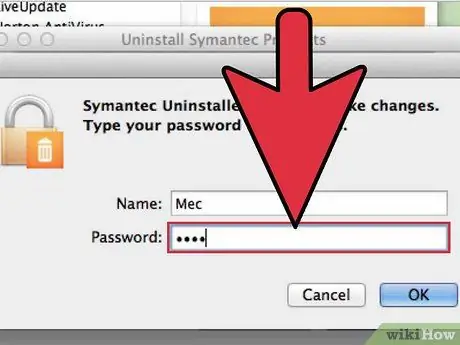
Step 3. Enter your administrator information
You must provide it to remove the program.
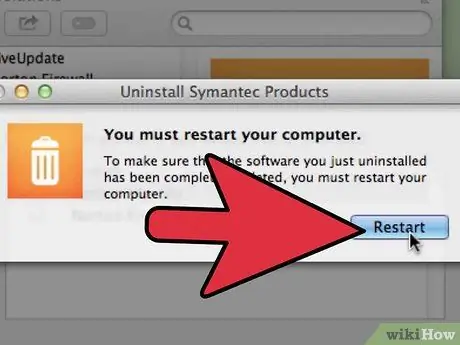
Step 4. Restart your computer
You will need to restart your Mac to complete the wipe process.
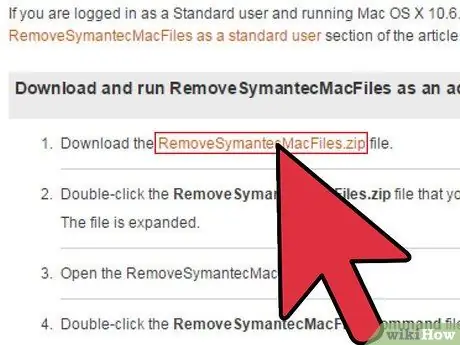
Step 5. Download the RemoveSymantecMacFiles utility
This is a program provided by Symantec (the developers of Norton) that removes all traces of the Norton software from your Mac. This is important, because Norton tends to leave a lot of stuff on the computer after it's been uninstalled.
- Download the RemoveSymantecMacFiles utility by typing "RemoveSymantecMacFiles" in your favorite search engine. It will appear in the first order of search results.
- Extract the ZIP file you downloaded.
- Run the RemoveSymantecMacFiles.command file. Click Open to confirm.
- Enter your administrator password. No characters will appear as you type. You must have an administrator password; a blank administrator password will not work and is a bad security practice.
- Press 1 then Return to delete all Symantec files. Press 2 to exit.
- Reboot your computer by pressing Y then Return






